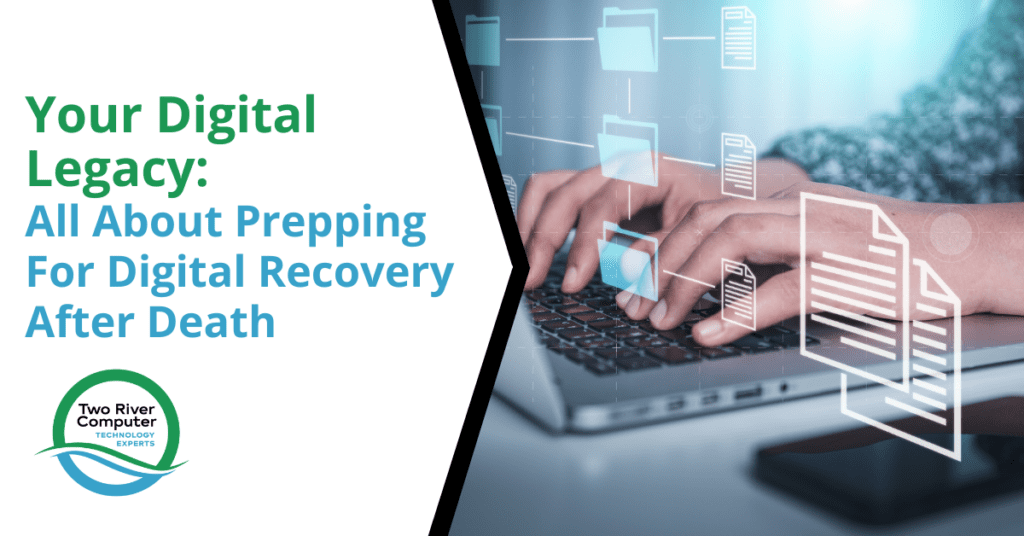
Death is an inevitable part of life, and in today’s digital age, it is important to think about what happens to our digital presence after we die. With so much of our personal and professional lives now online, it’s essential to have a plan for our digital legacy.
Digital recovery after death refers to the process of recovering and securing a deceased person’s digital assets, including email accounts, social media profiles, and other online accounts. Without proper planning and preparation, these assets could be lost or fall into the wrong hands.
This article will explore some important considerations for prepping for digital recovery after death, including identifying and managing digital assets, creating a digital will, and selecting a digital executor.
Identifying and Managing Digital Assets
The first step in prepping for digital recovery after death is to identify and manage your digital assets. These can include email accounts, social media profiles, online banking and investment accounts, and any other accounts that require a username and password.
To manage these assets, create a list of all your online accounts, including the website, the username, and the password. Store this list in a secure location, such as a password-protected document or a password manager.
It’s also essential to keep this list up to date, especially if you create new accounts or change passwords. Consider reviewing and updating this list annually or whenever there are significant changes to your digital assets.
Creating a Digital Will
A digital will is a legal document that outlines how your digital assets should be handled after your death. This can include instructions on how to access your online accounts, who should manage your social media profiles, and what should happen to any digital files, such as photos or videos.
When creating a digital will, it’s essential to be specific and clear about your wishes. Consider working with an attorney who has experience in digital estate planning to ensure that your wishes are legally binding.
It’s also important to ensure that your loved ones know about your digital will and where to find it. Consider sharing a copy of the document with your digital executor.
Selecting a Digital Executor
A digital executor is a person you designate to manage your digital assets after your death. This can include deleting social media profiles, closing online accounts, and distributing digital assets to beneficiaries.
When selecting a digital executor, choose someone you trust who has the technical knowledge and expertise to manage your digital assets properly. It’s also important to discuss your wishes and provide them with access to your digital will and list of digital assets.
If you don’t have a trusted family member or friend who can serve as your digital executor, consider working with a professional, such as a digital estate planning attorney or a professional executor service.
Protecting Your Digital Legacy
In addition to preparing for digital recovery after death, it’s essential to protect your digital legacy while you’re still alive. Here are some tips to keep in mind:
- For each of your accounts, use a password that is strong and unique. Although it may be easier to remember, don’t use the same password for more than one account.
- Enable two-factor authentication (2FA) whenever possible. This adds a higher level of security to your online accounts by requiring a second form of authentication, such as a code sent to your phone.
- Regularly back up important digital files, such as photos and videos, to a secure location, such as an external hard drive or cloud storage.
- Review and update your digital estate plan regularly, especially if there are significant changes to your digital assets or personal circumstances.
What Can You Do To Prepare Your Accounts Before Death?
Apple, Microsoft, and Google all offer features that allow you to give access to family members or designated individuals after you pass away. For example, Apple’s Legacy Contact feature allows you to designate someone to manage your Apple ID and iCloud account.
Microsoft offers a similar feature called Next of Kin, which allows you to designate someone to access your account at the end of your life. Google’s Inactive Account Manager allows you to specify what happens to your account if you don’t use it for a certain period of time or if you pass away. You can choose to have your account deleted, or you can designate someone to receive access to your account.
Giving Access to Family Members with Password Managers
Password managers are a great tool for managing your online accounts, and they can also be used to share logins with loved ones. Many password managers allow you to create a shared vault, which can be accessed by multiple people.
This can be a great way to give family members access to your accounts after you pass away. Some popular password managers that offer this feature include:
- Keeper
- 1Password
- Dashlane
Start Preparing Today
Prepping for digital recovery after death is an essential part of estate planning in our modern day. By identifying and managing your digital assets, creating a digital will, and selecting a digital executor, you can ensure that your digital legacy is protected and your wishes are followed.
If you need help with digital estate planning or have questions about prepping for digital recovery after death, contact Two River Computer today for assistance.


